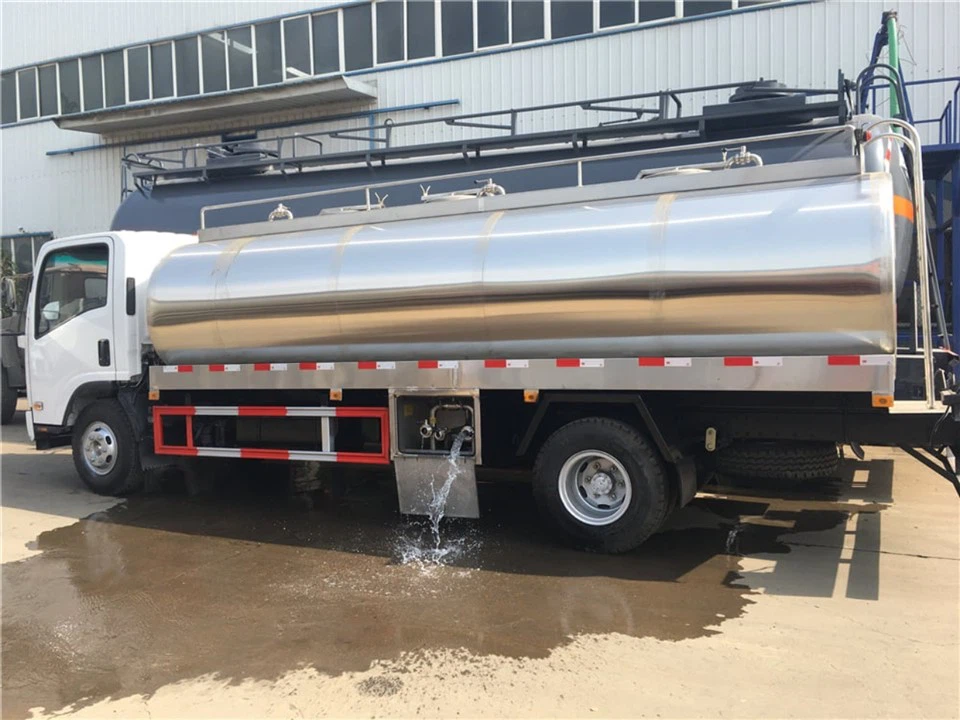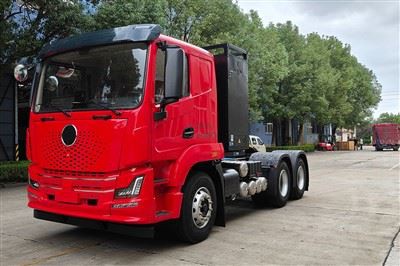Understanding Fuel Oil Trucks: A Comprehensive Guide

Introduction
Fuel oil trucks play a vital role in the transportation and delivery of fuel oil to commercial and residential locations. These specialized vehicles ensure that homes, businesses, and industries have access to the energy they need for heating, manufacturing, and other operations. In this article, we will explore everything there is to know about fuel oil trucks, including their components, benefits, regulations, and best practices for usage and maintenance.
What is a Fuel Oil Truck?
A fuel oil truck, often called a fuel delivery truck, is designed to transport liquid fuel, primarily heating oil, diesel, and other petroleum products. These trucks come equipped with tanks that can hold thousands of gallons of fuel and are fitted with pumps and hoses for efficient delivery.
Types of Fuel Oil Trucks
Fuel oil trucks can be classified into several types based on their design and function:
- Standard Tank Trucks: These are the most common type, designed for hauling fuel to residential and commercial locations.
- Flexible Tank Trailers: Used for transporting various types of liquid fuels, including fuels with different viscosities.
- Truck-mounted Fuel Tankers: These trucks have an integral tank and can easily maneuver in urban areas.
Common Specifications
| Specification | Details |
|---|---|
| Tank Capacity | 3,000 to 6,000 gallons |
| Engine Type | Diesel or Gasoline |
| Pump Type | Positive displacement or centrifugal |
| Weight Limit | Up to 26,000 lbs (with full load) |
The Importance of Fuel Oil Trucks
Fuel oil trucks serve several critical functions in daily operations:

- Reliable Delivery: They ensure timely fuel delivery, which is essential for both residential heating and industrial operations.
- Economical Solution: With bulk delivery, customers often benefit from lower pricing compared to retail purchases.
- Safety Standards: Fuel oil trucks are subjected to stringent safety regulations, which help in minimizing environmental hazards.
How Fuel Oil Trucks Operate
The operation of a fuel oil truck involves several key stages:
- Loading the Fuel: The truck is loaded at a fuel depot where the nozzle is connected to the field storage tank.
- Transportation: The truck navigates to the customer location, adhering to road safety and weight regulations.
- Unloading the Fuel: Upon arrival, the driver connects the hoses to the customer’s tank and transfers the fuel using the pump.
Key Components of Fuel Oil Trucks
Fuel Storage Tank
The tank is the primary component where fuel is stored. Made from durable materials, it is designed to withstand pressure and prevent leaks.
Pumping System
This system is responsible for transferring fuel from the tank to the delivery point. It can vary in size and power based on the fuel type being delivered.
Pipes and Hoses
These components ensure a secure and efficient flow of fuel and must be regularly inspected for wear and tear.
Regulations Governing Fuel Oil Trucks
Fuel oil trucks are subject to several regulations designed to ensure safety and environmental protection:
- Federal Regulations: The U.S. Department of Transportation oversees regulations related to the transportation of hazardous materials.
- State Regulations: Various states implement their own regulations, including licensing requirements and safety inspections.
- Environmental Protection: Trucks must comply with standards set by the Environmental Protection Agency to prevent spills and leaks.
Best Practices for Operating Fuel Oil Trucks
Driver Training

Proper training for drivers is essential. It should include safety protocols, emergency response procedures, and efficient delivery techniques.
Maintenance Schedule
Regular maintenance is critical to ensure the truck’s reliability and safety:
- Inspect pumps, hoses, and tanks for integrity.
- Perform routine engine checks and replace filters as necessary.
- Calibrate gauges to ensure accurate fuel measurement.
Safety Procedures
Always adhere to safety procedures to minimize risks:
- Use personal protective equipment (PPE) when handling fuel.
- Establish emergency response protocols in the event of a spill.
- Ensure proper signage is displayed on trucks to indicate hazardous materials.
Common Challenges with Fuel Oil Trucks
Spills and Leaks
Spills can result from equipment failure or improper handling. It’s imperative to have protocols for containment and cleanup in place.
Regulatory Compliance
Keeping up with changing regulations can be challenging. Companies must stay informed and adapt accordingly.
Driver Shortages
Like many transportation industries, the fuel oil sector also faces driver shortages, which can lead to delays in delivery and increased operational costs.
Real-Life Applications of Fuel Oil Trucks
Residential Heating
In colder climates, fuel oil trucks deliver heating oil directly to homes, ensuring residents have a reliable heating source.
Commercial Businesses
Businesses that rely on heating oil for heating or manufacturing processes depend heavily on timely fuel deliveries from trucks.
Construction Sites
Construction equipment often requires substantial fuel supplies, which can be efficiently delivered by fuel oil trucks.
Future Trends in Fuel Oil Trucking
Alternative Fuels
As the world shifts towards more sustainable energy sources, fuel oil trucks may begin to incorporate alternative fuels and hybrid technologies to reduce emissions.
Technology Integration
Advancements in technology, such as GPS and telematics, are playing a role in optimizing fuel delivery logistics and improving safety.
FAQ Section
What is the average fuel capacity of a fuel oil truck?
The average fuel capacity of a fuel oil truck ranges from 3,000 to 6,000 gallons, depending on the type and model of the truck.
How are fuel oil trucks maintained?
Fuel oil trucks require regular maintenance, including inspections of the tank, pump, and hoses, along with routine engine checks and filter replacements.
Are there environmental regulations for fuel oil trucks?
Yes, fuel oil trucks must comply with federal and state regulations regarding the transportation of hazardous materials and environmental protection standards.

How can companies reduce the risks of spills and leaks?
Companies can reduce spill risks by providing driver training, regularly inspecting equipment, and establishing emergency response protocols for leaks and spills.
What types of businesses use fuel oil trucks?
Fuel oil trucks are commonly used by residential heating providers, manufacturing facilities, construction sites, and any business that requires bulk fuel supplies.
